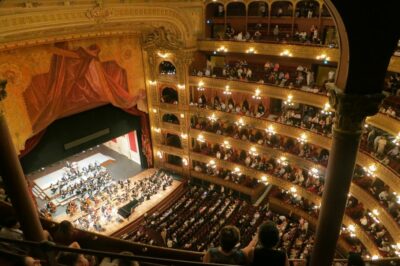Are the EU and Mercosur in the final sprint towards an agreement?
It is likely to be the last attempt to save the treaty between the EU and South America. Brazilian President Luiz Inácio Lula da Silva in particular is working hard to achieve a result. Will the EU go along?
by Alexander Busch, Latin America correspondent for Handelsblatt and Neue Zürcher Zeitung
Brazilian President Lula had not traveled abroad for two months following his hip operation. But now he has started a furious tour which – with a little luck and skill – could end with a crowning finale. Hopes are high in Brazil that, following his state visits to Dubai and Berlin, Lula will be able to announce the agreement on the world’s largest free trade zone with the other South American presidents at the Mercosur meeting in Rio de Janeiro on December 7.
The timing of Lula’s agenda is perfect: in Dubai, Lula will appear at the climate conference as a global climate protector. The presidents of the USA and China are not attending. This should give the Brazilian president more attention. With 2,400 participants, the Brazilian delegation is the largest at the conference.
Lula will announce there that since he took office in January of this year, deforestation in the Amazon region has fallen by almost 50 percent by October. This is a great success – and will take the wind out of the sails of opponents of the Mercosur agreement in the EU. In Dubai, Lula also wants to meet with EU Commission President Ursula von der Leyen in order to remove the last obstacles to the agreement.
Lula will then appear in Berlin from December 4 for the German-Brazilian government consultations with his most important ministers. Two dozen bilateral agreements are to be signed.
Brazil is the only country in North and South America with which Germany holds intergovernmental consultations. The first – and last – time they took place was in 2015. Berlin wants to intensify cooperation again with the Lula government. Lula will also discuss future cooperation between the EU and Mercosur with the Federal Chancellor.
The agreement could then be announced at the Mercosur summit in Rio de Janeiro on December 7. It is important to note that Argentina’s designated foreign minister has just declared in Brasília that the government under President Javier Milei, which will take office on December 10, supports the EU-Mercosur agreement.
Now or never – the chances of the agreement being negotiated and concluded next year are slim.
Paraguay’s head of state Santiago Peña Palacios has already announced that Mercosur will not continue to negotiate with the EU under his presidency, which will begin in Rio. Uruguay’s President Luis Alberto Lacalle Pou declared last week during his state visit to Beijing that he wanted to negotiate a bilateral agreement with China and Mercosur. The argument: the EU is not making progress.
Mercosur diplomats have already made provisions in case the agreement with the EU fails at the last minute: Bolivia is to be accepted as a full member of Mercosur in Rio. At the same time, the South American economic community will conclude a free trade agreement with Singapore.
The summit could therefore be celebrated as a success – even without an agreement with the EU.






